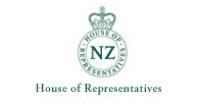Supporting Families, Preventing Tragedies
Report from the Health Select Committee 18 October 2010 in response to our submission
You can read the original report in full here:
Or the summary below…
Summary of recommendations
The Health Committee makes the following recommendations to the Government:
- that it urge the key providers (midwives, obstetricians, paediatricians, GPs, and anaesthetists) and consumers to continue to develop a collaborative non-fragmented model of maternity care in New Zealand. The guidelines used to improve the system should be based on research, evidence, and best practice. We believe it would be helpful for the leaders of the relevant professions and consumers to meet formally on a regular basis to keep best-practice guidelines up to date. Every effort should be made to ensure a smooth continuum of care from early pregnancy to the post-natal period. To avoid fragmentation, all parties should collaborate and share information (page 12)
- that it consider establishing an independent national perinatal epidemiology unit for collecting data on all births as part of its Maternity Quality Initiative. Part of its function would be to provide a feedback mechanism for communicating information and lessons learnt to midwives and clinicians. Subsequently the Government might consider a single data collection agency to avoid duplication (page 13)
- that it require both the Medical Council of New Zealand and the Midwifery Council of New Zealand to ensure that new graduates have significant post-graduate monitoring, supervision, and education updates, before going into independent practice. In our view, with regard to midwives, this should be for at least a year after graduation. All graduates should be subject to the requirements of continuous peer review, audit, and educational updates for as long as they are in practice. This is currently the expectation, but it is our view that it should be a requirement (page 16)
- that it develop guidelines for all providers, including the coroner, for the process of investigation and for communication with the bereaved family, following the referral of a perinatal death to the coroner (page 13)
- that it require GPs to formally refer pregnant women to lead maternity carers before the tenth week of pregnancy. This would ensure that the appropriate screening tests could be carried out in a timely way (page 14)
- that there be formal referrals back to the GP by six weeks post-partum, containing a summary of pertinent facts (page 14)
- that information relating to ongoing well-child care be relayed to parents according to best practice guidelines (page 14)
- that the Ministry of Health continue to commission consumer satisfaction surveys at appropriate intervals. These surveys should be independently provided and of the highest possible quality to secure robust information (page 15)
- that it develop a suitable mechanism to assess the views of parents whose babies suffered serious adverse events or died before or during birth (page 15)
- that the Ministry of Health provide better coordinated support through DHBs and community groups for families affected by adverse birth events (page 17)
- that it vigorously implement its Maternity Quality Initiative, which involves (pages 17–18)
- the development of a national quality and safety programme to help ensure delivery of the best possible maternity services, and to ensure New Zealand maternity services continue to be of high quality
- updating the guidelines for referrals between lead maternity carers and obstetricians and other specialists. These guidelines help ensure mothers and babies are referred or transferred to the most appropriate clinician when required
- the development of nationally-standardised maternity clinical records to support the electronic transfer of information between health professionals
- the improvement of the collection of maternal and newborn information so the quality and safety of maternity services can be monitored better.
- that it note the key points of the Perinatal and Maternal Mortality Review Committee’s report to the Minister of Health, Perinatal and Maternal Mortality in New Zealand 2007.1 (page 18)
- that it review and note the relevant recommendations of the 1999 maternity review. (Some of us consider that the remaining points of the Draft Maternity Action Plan should be given further consideration).2(page 18 )
- that it take serious note of the petition of Jennifer Maree Hooper. (page 18)
Red Flags
RED FLAGS
- Lack of monitoring
- “Normalising” the abnormal
- Lack of action/delay in getting emergency care
- Going over due date
- Failure to progress in labour
- Meconium-stained liquor (waters)
- Lengthy handover during emergency
- Inconsistent reporting and documentation
- Your concerns being ignoredClick here to read more about common warning signs
Disclaimer:
The content of this website is offered for information purposes only and is not intended in any way to be a substitute for medical advice. It should not be used for diagnosing or treating a health problem. Always check with your medical practitioner if you have concerns about your condition or treatment. AIM is not responsible or liable, directly or indirectly, for any form of damages whatsoever resulting from the use (or misuse) of information contained in or implied by the information on this site.
This website contains links to websites operated by third parties. Such links are provided for reference only. AIM does not control such websites and is therefore not responsible for their content.


